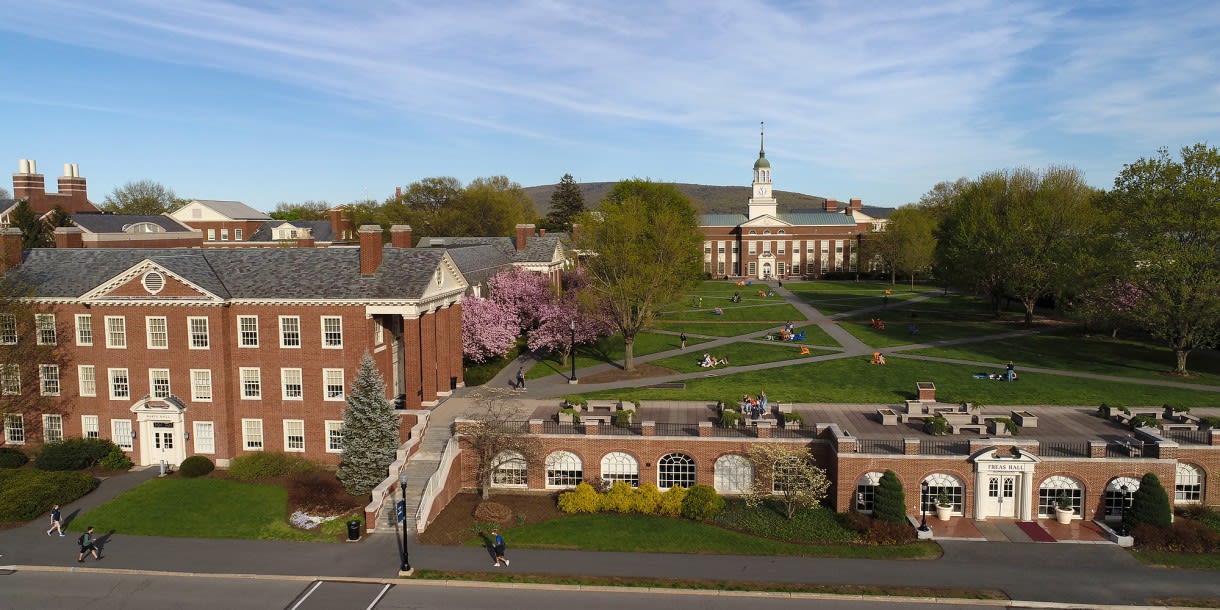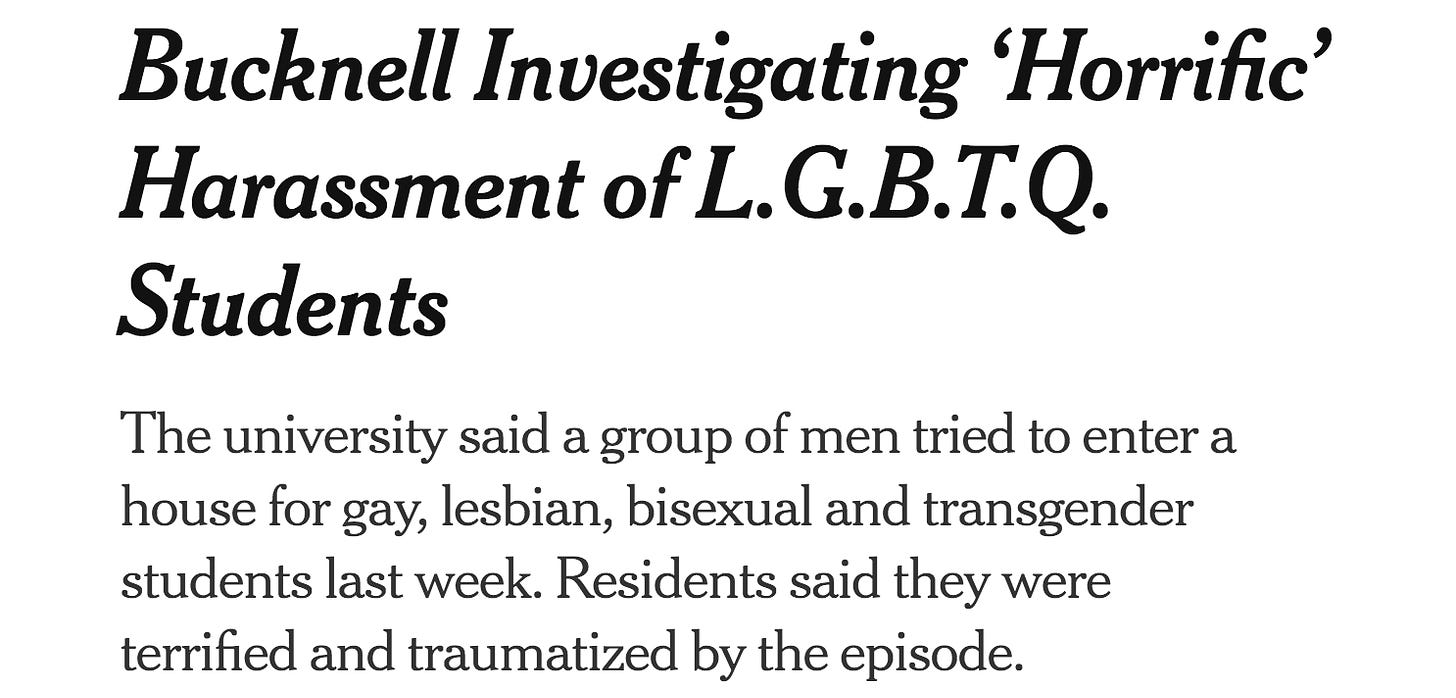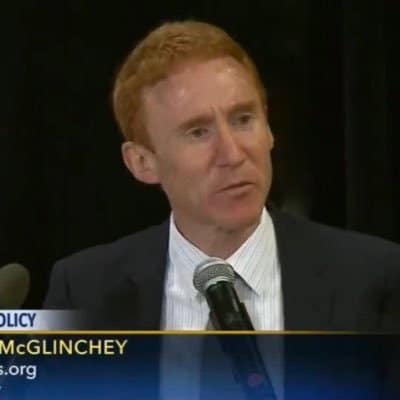In mid-May, news broke of a disturbing incident at Bucknell University: Outlets across the country reported that, on the eve of final exams, a mob of 15 to 20 intolerant male students had victimized the school’s LGBTQ community via an attack on a residence hall established as a “safe space” for community members.
The intruders were members of a former Tau Kappa Epsilon (TKE) fraternity chapter that was shut down in 2019 over hazing violations. Before hosting the “Fran’s House” LGBTQ residential group, the building at the center of the disturbance was TKE’s decades-long home at Bucknell.
Students living in the house said the TKE brothers banged on doors and windows, yelling, “Let us in…this isn’t your home…this is our home.” One apparently exposed himself; someone allegedly urinated on the porch.
That same evening, the house’s residential advisor published a lengthy and emotionally-charged open letter to Bucknell President John Bravman, recounting how the experience of “20 inebriated former fraternity members harass(ing) the LGBTQ+ community” left his “legs shaking with adrenaline.”
On the morning after the disturbance, Bucknell raced to issue a statement condemning what it called a “horrific incident.”
In a fateful contradiction, the university simultaneously promised an independent investigation to ascertain the facts while embracing the assumption that this was an attack on the LGBTQ community.
“We cannot erase the ugliness and subsequent trauma of last night’s transgression against the students of Fran’s House and, implicitly, many others, but we can commit to addressing it in a way that protects LGBTQ Bucknellians and better ensures their safety in the future,” said the statement issued by Bravman along with the school’s provost and its associate provost for equity and inclusive excellence.
Bucknell’s dramatically-worded embrace of the hate crime narrative poured gasoline on the public relations fire. By characterizing the episode as a “horrific incident” against LGBTQ students that left administrators “sorrowful,” the university handed journalists and editors just what they needed for sensational, click-inducing coverage.
Stories erupted at the nation’s most prominent outlets, with headlines describing a shocking hate crime at the highly selective Pennsylvania school:
- The New York Times: Bucknell Investigating “Horrific” Harassment of LGBTQ Students
- USA Today: Bucknell University Condemns “Horrific” Attack on LGBTQ Residence: “We Are Outraged and Sorrowful”
- The Washington Post: “Horrific” Attack on LGBTQ House Sparks University Investigation
Social media lit up with indignation. A professor arranged for people to take shifts standing guard outside the house. Students organized a “solidarity march against toxic masculinity.” TKE’s national office condemned the incident as an “act of intolerance.”
And then, two months after the school’s nationwide hate-crime humiliation, Bucknell announced that a university-commissioned independent investigation by law firm Cozen O’Connor “found no evidence that the students outside of Fran’s House on May 13 were motivated by bias against the residents and their affinity as an LGBTQ+ community.”
Good luck finding that news at the Washington Post, New York Times, USA Today, NBC News, CNN, Fox News, New York Post, The Hill, Boston Globe, The Advocate, New York Daily News, Insider Higher Ed, Los Angeles Blade, Yahoo News, Buzzfeed, Seattle Times and countless other outlets that pushed the false, Bucknell-encouraged hate crime angle.
Hate Motive Doubtful from the Start
I took special interest in this incident: I graduated from Bucknell and I’ve been an enthusiastic booster of my alma mater.
When I first saw the headlines, I was embarrassed that such an ugly event happened at Bucknell. As I read the details, however, I immediately grew skeptical about the hate crime narrative and troubled by the university’s official statement.
From all accounts, it sounded like drunk senior-class TKEs—still deeply resentful of the university’s closure of their chapter—took a final trip to their cherished former home and obnoxiously took out their lingering anger at the expense of whomever was unlucky enough to be occupying it.
Consistent with that, something was conspicuously absent from the witness accounts: any claim that homophobic, transphobic or similar slurs were directed at them. Rather, the TKEs yelled, “This isn’t your home…it’s our home.”
As supposed evidence of an anti-LGBTQ motive, the residential advisor said the TKEs “(swung) a metal bar at our flag pole that displays our pride flag.” However, it seems plausible the inebriated intruders would have taken a swat at any flag on “their” house other than a TKE flag.
I wasn’t the only doubter of the hate crime narrative. Days after the incident, freelance journalist and self-described former “gay frat boy” Skylar Baker-Jordan, writing at Medium, said his initial reaction was “outrage.” After diving into the details, though, he concluded “there is nothing in this reporting to suggest what happened was a targeted attack on the LGBT community.”
It’s one thing for the occupants of the LGBTQ house—rattled by a jarring disturbance—to leap to the conclusion they were targeted because of their LGBTQ status. It’s another for the university to embrace that assumption in a message to the campus community and the media.
Reacting to a CNN story, a Bucknell classmate texted me his own thoughts, which concisely summed up the situation: “Don’t think it was quite an intentional LGBTQ hate crime, but it is now.”
Hate Crime Assumption a Recurring Phenomenon
In Bucknell administration offices, in newsrooms, dorm rooms and across social media, the fact that LGBTQ students lived in the house was enough to trigger firm convictions that the fraternity brothers’ trespassing was motivated by anti-LGBTQ bias.
Had a different special interest group happened to live in the former TKE house, we’d likely have seen headlines decrying a racist, xenophobic or anti-semitic attack at Bucknell. On the other hand, as Baker-Jordan wrote in May, “Had (this) been a regular dorm, this never would have made national news.”
The Bucknell incident exemplifies a broader phenomenon in which aggression directed at people who are members of a marginal group is assumed to be motivated by the victims’ status. Of many examples of this national syndrome, two stand out as particularly illustrative.
In March, a white man attacked three massage parlors in Atlanta, killing eight workers. The killer’s whiteness and the fact that six of the dead were Asian women was enough to ignite a media, government official and public uproar characterizing the attack as a racist, anti-Asian hate crime.
In the immediate aftermath, the Washington Post alone published sixteen articles framing the attacks as racially motivated. Then we learned the killer had patronized some of the parlors he attacked. He told police he’d battled sex addiction and lashed out at the parlors because he viewed them as a source of temptation—not because of the heavily Asian demographic profile of their employees.
In 2016, Omar Mateen murdered 49 people and wounded 53 others at Pulse, a gay nightclub in Orlando. Five years later, politicians and activists continue to promote the fiction that Mateen was driven by anti-LGBTQ bias. There is absolutely no evidence to substantiate that assumption and plenty to contradict it.
Clinging to hate crime mythology about the Pulse attack isn’t just a dishonest means of advancing the LGBTQ cause, it also does harm by hiding Mateen’s real motive: He made it emphatically clear he killed in retaliation for the U.S. bombing of Muslims in the Middle East. Burying that motive diminishes Americans’ ability to weigh the domestic costs of their government’s foreign interventions.
As if baseless assumptions about real events weren’t enough to thwart Americans’ ability to gauge actual levels of intolerance in the country, the picture is further muddied by outright hate crime hoaxes, such as a black student writing racist graffiti at Albion College in April.
Kentucky State University criminal justice and political science professor Wilfred Reilly has created a database of hundreds of such hate crime hoaxes and written a book about the phenomenon.
Bucknell’s Reaction a Disservice to the University and LGBTQ People Everywhere
Particularly where college administrators are concerned, the urge to overreact and baselessly authenticate the hate-victim claims of aggrieved parties is, to some extent, understandable.
After all, in a woke culture that declares “silence is violence,” administrators who fail to immediately embrace the victims’ narrative run the risk that an activist mob will turn its wrath on school officials, accusing them of being “part of the problem.”
On top of the danger to reputations and job security, there’s the chance they could find themselves, like the president of Evergreen State College, essentially taken prisoner in their own office.
Of course, however imperative it may seem while under duress, abandoning reason, respect for facts and due process has its own costs.
Given Bucknell’s subsequent investigation found no evidence that the TKEs’ hooliganism was motivated by anti-LGBTQ bias, the university’s statement implicitly endorsing the bias-motive claim fed a media misinformation frenzy that baselessly bruised the school’s reputation.
Needlessly embarrassing alumni, students and faculty wasn’t the only bad outcome: The university’s approach surely stoked undue anxiety among LGBTQ people across the country.
“Stories like this, framed in a way to suggest there was some concerted attack on the LGBT community…help perpetuate an unwarranted climate of fear on our campuses,” wrote Baker-Jordan, who noted that support for gay and lesbian people has doubled over the last 30 years. “This was not a targeted attack on the LGBT community, rather a fraternity party gone too far. That distinction matters, because I do not want LGBT students feeling any less safe than they need to feel.”
By cultivating excessive fear via a false account of what happened at Bucknell, the nationwide mischaracterization of the incident feeds a cycle where future incidents in other places will be more prone to misinterpretation too.
It should be also be noted, that, while some of the TKE brothers who descended on their former house were apparently guilty of harsh, intrusive and lewd behavior that frightened members of Fran’s House, the university’s May 14 implication that the TKEs had carried out an anti-LGBTQ attack was inconsistent with the ideals of due process and fair treatment of the accused.
I asked Bucknell if President Bravman regretted the May 14 statement language, or if the university wished to acknowledge any lessons learned from the barrage of bad publicity invited by Bucknell’s dramatically-worded embrace of a false narrative.
A university spokesperson referred me to Bravman’s July 12 statement that “summarizes findings of the investigation and represents Bucknell’s final position on the incident.” However, that statement lacks any evaluation of the administration’s handling of the episode.
Meanwhile, since there’s been essentially no follow-up reporting that an outside investigation contradicted the school’s initial stance, for too many people, their “final position” is that Bucknell had a “horrific” anti-LGBTQ incident in May.
Bucknell Grants LGBTQ Group’s Request
In an open letter posted shortly after the incident, Bucknell’s LGBTQ residential affinity group requested it be assigned a permanent residence: “Under no circumstances should Fran’s House be in jeopardy of losing their physical space due to the requirements Bucknell enforces to fill roster spots as opposed to creating inclusive living spaces.”
In July, when Bravman announced the findings of the investigation, he declared the former TKE house would become “the permanent campus affinity house for LGBTQ+ students and their allies.”
When it made its plea for a permanent space, the LGBTQ residential affinity group said, “Never again should someone feel entitled to come to our home and say it’s ‘their house and not ours’.”
At the same time, let’s hope Bucknell University will never again undermine its own reputation by impulsively endorsing a false narrative.
This article was originally featured at Stark Realities and is republished with permission.

































